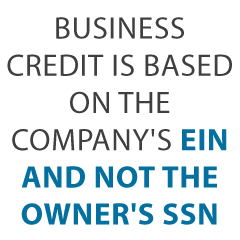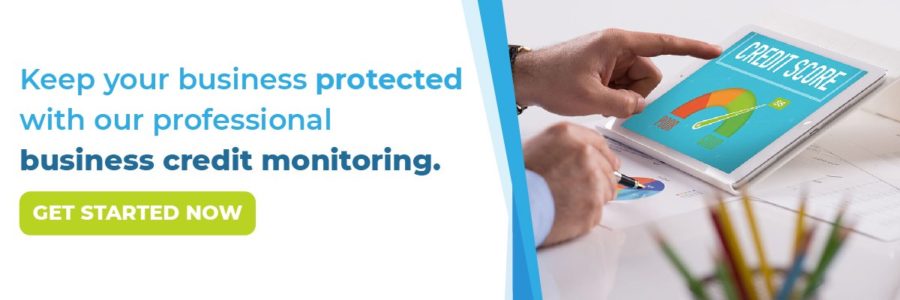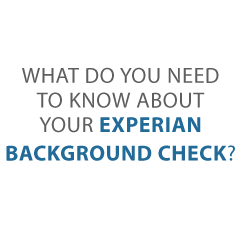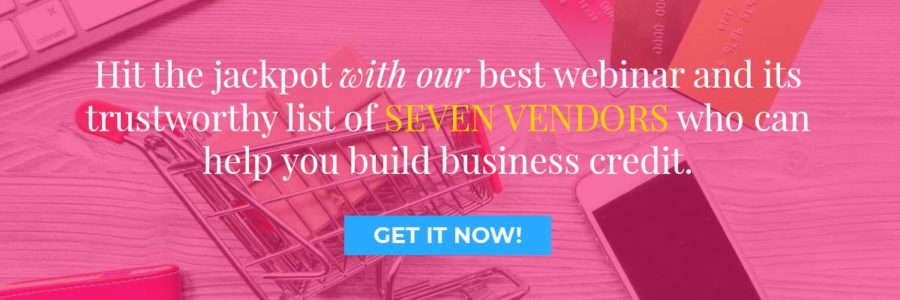Everything Starts with Something: Business Credit Starts with Business Trade Lines
Everything has to start somewhere, with something. A flower starts with a seed. A book starts with the first letter typed, a house begins with the first nail hammered, and a move begins with the director’s word. When it comes to business credit, it all starts with business trade lines.
You have heard the adage you have to have money to make money. You have probably heard you have to have credit to get credit. While both of these are true to a point, seemingly catching us in a vicious circle, it isn’t entirely true with business credit.
A circle has no clear beginning. Business credit however, does. Just not very many people know about it, and it can be difficult to find. We know the secret though, and we are willing to share.
The Prep Work for Business Trade Lines
Of course, we all know that a lot of work goes in a house, a book, a garden, and a movie before that actual first nail, letter, seed, or director’s word. This prep work lays as solid foundation for the final masterpiece. There is a way to lay a solid foundation for business credit as well, before you even consider looking into business trade lines.
Research is how a book or movie starts, and any construction starts with clearing the area and dirt work. A garden spot must be tilled and fertilized before seeds can be planted. Something similar is necessary to establish and build business credit. You have to build a solid foundation for that credit to sit on. Now, that foundation is not necessarily your business. Your business and your business credit will grow together. You can start the prep work at the same time you are starting your business.
To be clear, if your business is already up and running you can still establish business credit. The foundation can still be built. In this way it is different than a building or a book. However, as with any first steps, it is much easier to take them in the beginning.
How to Form the Foundation for Business Credit
Before you consider business trade lines, you need to consider how your business is set up. For many new business owners, starting a business just kind of happens. You have something you do that you love, and you decide its time to use it to make money. You may find a location or start from your home. Likely you simply mingle funds in your personal bank account. You have a business name but the business address, email, and phone number are all the same as your personal contact information. It is sort of a natural progression.
Hit the jackpot with our best webinar and its trustworthy list of seven vendors who can help you build business credit.
If you want to establish business credit, you have to be purposeful to set up your business separate from yourself. This means doing a few things differently.
How to Establish Your Business as a Separate Entity
First, you have to incorporate. Running as a DBA, sole proprietorship, or partnership really won’t cut it. You can choose from running as a corporation, S-corp, or LLC based on your specific needs, but it needs to be one of these three. Each one comes associated with a different cost and varying levels of protection, but each will serve the purpose of separating your business from yourself.
Next, establish separate contact information for your business. You need a business address, email, and phone number that is different from your personal address, email, and phone number. The phone number should be from a toll-free exchange, and your email address should be associated with your professional website. Do not use a free service such as Gmail or Yahoo, and don’t ignore the professional website part. These days, a poorly put together website can ruin a business.
Pick Your Numbers
After these first steps are complete you need to play the numbers game. In order to establish business credit, your business has to have two numbers associated with it. The first is an EIN. This is an identifying number for a business, similar to a social security number. You can get one for free on the IRS website.
The next is a DUNS number. This is a number assigned by Dun & Bradstreet, the largest and most commonly used business credit reporting agency. To have a business credit file with them, you must have a DUNS number. You can apply for it for free on their website, but note that they will definitely try to sell you other services. Be strong. The number is free and the other services are not necessary.
Separate the Finances to Get Business Trade Lines
Open a separate bank account for your business. This is the account through which all business financial transactions should run. If your business is already up and running, it may take you some time to get everything switched over, but it will be worth it. Not only will is help separate your business from your personal credit, but it will also help tremendously when it is time to do your taxes.
Plant the Seed, Hammer the Nail: The Magic of Business Trade Lines
Okay, so these steps ensure that your business is on record as a business at all the right places. As soon as something credit related is reporting, it will have a place to go. How do you get something reported though? You need accounts that will report your on-time payments. Lenders will not even consider extending you credit however, if you don’t have a credit score, or if your credit score is bad. How do you break into the circle?
You can find a tiny crack with business trade lines. These are vendors that sell things you use in the everyday course of business, and they are vital to building business credit. Here’s how it works. They will extend net30 terms on invoices, without a credit check, and then report your invoice payments to the business credit reporting agencies.
For most of these vendors, you will have to make a few initial purchases before they will extent net30 terms. Some want to see a minimum time in business or a certain revenue level as well. We have compiled a list of six easy approval business trade lines to help you get started.
Hit the jackpot with our best webinar and its trustworthy list of seven vendors who can help you build business credit.
If you need computers or other electronics, this is the place to start. Newegg Business offers tons of electronic products, so there is something that pretty much any business can use. To open an account with net30 terms, you’ll need a DUNS number and a bank reference. Net30 accounts range from $500 to $1,000, and they report to Dun & Bradstreet.
This company sells eBooks, software, and even office supplies. You do have to register to see their products, but the process if fast and easy. You will have to make a $60 or more initial purchase to be eligible for a net30 account of up to $2,000. They report to Experian and Credit Safe.
Granger industrial supply sells industrial equipment for outdoors as well as standard tools, and more. To gain net 30 approval you will need a business license, a DUNS number, and bank reference. Their net 30 accounts range from $500 to $1,000 and they report to Dun & Bradstreet.
Another office supply provider, you can order anything from paper to staples, pens to printer ink, and pretty much anything you can think of in between from Summa. They require a $60 initial purchase, and will approve up to $2,000 on net 30 terms. They report to Dun & Bradstreet.
Quill also sells standard office supplies. You will need to make an initial purchase. They’ll usually put you on a 90 day prepay scheduled, but after ordering for 3 months in a row, they’ll typically approve net 30 term. They report to Dun & Bradstreet.
Uline sells a lot of things, but they specialize in packing and shipping equipment and janitorial supplies. You’ll need to place an initial order, and they do ask for a bank reference and two other references. They report to Dun & Bradstreet, so you’ll of course need a DUNS number too.
If you open accounts and get net 30 approval with each of these, you could have between $5,000 and $10,000 in accounts reporting to the credit agencies pretty quickly. Make your payment consistently, and that seed you planted with these easy approval business trade lines will sprout to the point you will be ready for the next step in building business credit before you know it.
Hit the jackpot with our best webinar and its trustworthy list of seven vendors who can help you build business credit.
What Comes After Business Trade Lines?
These business trade lines are all part of the vendor credit tier. After you have a few of these accounts reporting, you can apply for accounts in the retail credit tier, then the fleet credit tier, then the cash credit tier. Here’s what you need to know about each tier, and what happens when you get to the top.
The Retail Credit Tier
This would be relatable to the editing stage of writing a book or a movie, the weeding stage of planting a garden, or the sheetrock stage of building a house. You’ve done the prework of research or preparing the ground, you have planted that first seed, banged out that first word, or hammered that first nail. So now, it is time to move on.
In building business credit, after you have enough business trade lines reporting, this means moving on to the retail credit tier. These are credit cards issued by specific retailers such as Amazon, Office Depot, and Best Buy. Apply for these accounts, purchase things you need in the everyday course of running your business, and make your payments on-time. Your business credit score will grow stronger by the day.
The Fleet Credit Tier
This is where you head into publication, start prescreens, water the garden daily, and start getting the inside of that house ready for move in with paint and appliances. These cards are issued by fleet companies such as Shell and Fuelman. They can be used to purchase gasoline or for automobile maintenance and repairs. Once you have enough of these accounts reporting, it’s time for the last tier.

The Cash Credit Tier
The cash credit tier is the finished product. Your book or movie is out there for the public to enjoy, your garden is ready for harvest, and you can sleep comfortably in that house each night. The cash credit tier consists of the traditional Visa, Master, and American Express cards not associated with a specific store. Use this wisely, continue to make consistent, on-time payments, and your business credit will be rock solid.
Why Business Credit?
You may be asking yourself the question, why bother? You may have personal credit that will allow you to get what you need to run your business without needing to work with business trade lines. It can take time, and better prices may be available elsewhere. What’s the point? Why do you need business credit?
The fact is, its never a good idea to have your business transactions on your personal credit report. There are a few reasons for this. First, if your personal credit takes a hit, it can affect your ability to run your business.
Also, business credit cards based on personal credit often have a lower credit limit, and business transactions are often very large. If you get close to your limit, your score will take a hit even if you make your payments like you should due to the high debt-to-credit ratio.
By having cards based on your business credit, you can get higher limits, and your personal credit will not be affected by business transactions. This way, you do not have to worry about business transactions keeping you from applying for personal credit you may need to purchase a car or make home improvements.
Business Trade Lines are the Beginning of Great Business Credit
Regardless of your personal credit score, you really do have to work with business trade lines to start your business credit. After you establish your business and prepare the way for your business transactions to be reported to your business credit profile, you will need accounts to report. Most credit cards will not extend credit to a business with no credit, or bad credit. Working with business trade lines that do not do a credit check is a way around that. You can start building business credit in your business name without your personal credit score ever being involved. So it’s a win/win for you and for your business.
The post Break in to the Credit Circle: 6 Easy Approval Business Trade Lines appeared first on Credit Suite.








